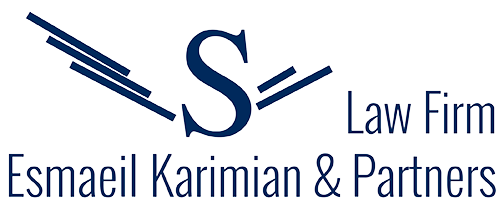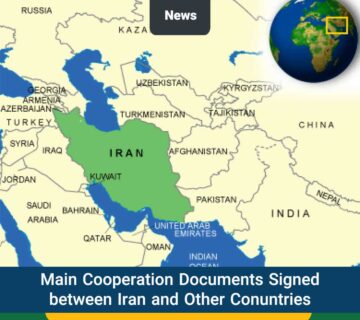In this article you will read:
Main Features of Franchise Agreement (Part I)
1. Introduction
Based on a franchise agreement, the franchisor grants a right to the franchisee to do business in a prescribed manner which is determined by the franchisor. Many companies use franchising to expand and grow their businesses.
An example is the franchise agreement signed between “Flokser Group” as a franchisor and the “Sehan Co.” as a franchisee in 2011.
he subject of this agreement is granting the right of using “SERTEX” trademark by the franchisor to the franchisee. The parties agreed to do the marketing and sale of textiles, leather, and other items and products under the SERTEX brand in the contract territory.
The franchisor on the other hand committed to support and provide the franchisee with after-sales services for the products. The franchisor, “Flokser”, has committed to full cooperation with the franchisee.
This commitment includes the supply and delivery of the products with excellent quality and promptly. The franchisee is also committed to the marketing, supply, advertising display, sales, management, and sales supervision of Flokser’s products.
In addition to the above, the franchisee shall comply with the standards set by the franchisor regarding the marketing, equipping, and preparation of stores.
You might also be interested in :
Based on this agreement, the franchisor will not be allowed to sell, market, or grant these rights to a third party directly or indirectly within the geographical area specified in the contract. Although there is no partnership between the parties in this agreement, each of them is committed not to compete with the other party.
According to Article (10) of the Agreement, the parties shall jointly set annual targets for the management of marketing and advertisement and the marketing costs will be paid equally by the parties.

The industrial property rights including trademark as well as the advertising slogan belong to the franchisor and the franchisee will only be allowed to use them within the scope of the contract and under its terms.
The parties to this franchise agreement, without creating any partnership or sharing the loss and profit between themselves, are committed to taking appropriate measures and decisions to develop business activities and make profit by focusing on the achievement of a common goal.
Since franchises vary widely depending on the type of business, industry, methods of operations, and other requirements, there is no standard form of franchise agreement upon which the parties involved in a particular type of business could use it frequently.
However, based on practical experiences that we achieved through working as a lawyer or business advisor in franchising, there are some key provisions outlined in some form or fashion of every franchise agreement.

2. Territory and Location
Under this condition, the geographical area in which the franchisee has an exclusive right is determined. Since the rights and obligations of the parties created and continued in the contract area, therefore, the definition of this area in the contract is of fundamental importance. To avoid further dispute between the parties, the territory and location are normally defined in the agreement:
“TERRITORY” shall mean THE ISLAMIC REPUBLIC OF IRAN”
“Master Franchise Agreement between DEBONAIRS PIZZA (PTY) LIMITED as a franchisor and PARS ADAK RITON as a franchisee in 2013.”
In addition to a master franchise agreement, where the territory is typically large and may be as big as a country, in sub-franchise agreements concluded with the sub-franchisee, the area is reduced to a specific location.
One of the most important issues to consider when defining territory is the issue of market saturation. If the individual franchise agreement does not contain some limit to the number of outlets that this franchise can open in the specified area, it will result in the market over-saturation and its negative effects on franchisees.
So it is recommended that, in the due diligence phase, the franchisee analyzes the franchisor’s strategy in terms of the number of outlets that are incorporated into the franchisor’s system per territory so the franchisee can recognize the possible market over-saturation and its negative consequences on the future franchise business.

3. Intellectual Property Rights
1. A franchise agreement grants the franchisee the right to use the franchisor intellectual property rights such as trade names, trademarks, logos, slogans, designs, trade secrets, know-how, operating manual, proprietary software systems, and other branding indicia. This contractual license is the foundation of the agreement. The franchisor as an owner normally grants these IP rights through a license to the franchisee while the franchisee has no right, title, or interest in or to any of the IP rights, except as granted to it by the franchise agreement.
2. The license in franchising generally means the sole, exclusive and non-transferable right during the term of the franchise agreement to commercially exploit the intellectual property rights by the franchisee only for the conduct, promotion, establishment, operation, and development of many aspects of the business in the territory and in so doing to recruit, train, support, promote, assist and advise franchisees in successfully owning and operating the outlets in the territory.
3. To avoid the dispute in the future, it is recommended that the parties define each IP rights separately in the agreement. For example in the “Master Franchise Agreement between DEBONAIRS PIZZA (PTY) LIMITED as a franchisor and PARS ADAK RITON as a franchisee in 2013” due to the sensitivity of IP rights in this particular franchise, the parties defined the “ trade secret” in details as follows:

“Trade Secrets” include:
1.38.1 All private information of whatever nature relating to the business, the franchisor, franchisee and the outlets; and
1.38.2 includes (without limiting the generality of the foregoing) matters relating to the business affairs and activities of the franchisor as well as the business affairs and activities of the franchisee, and shall mean and include but shall not be limited to trade secrets (when given its ordinary meaning), confidential information, valuable know-how, customer connections, information concerning the requirements and financial affairs of the franchisee, knowledge and availability of the franchisor’s, the franchisee’s and the franchisee’ supplies and stocks, knowledge as to the credit worthiness of the persons with whom the franchisor, the franchisee conduct any commercial transactions with the franchisee’s projections, hopes, ideas, vision and thoughts in regard to the position of the trademarks in the market place, its/their penetration in the market place, and generally all and any information concerning the conduct of the business and outlets, as well as the affairs of the franchisor and the franchisee in relation to this agreement, as well as all aspects, matters and things relating to or in connection with the business and outlets provided, however, that any information that is in the public domain shall not be considered a trade secrets, unless there are elements relating to that information which, having regard to the circumstances and/or other elements pertaining to the information, renders it to be a trade secret or confidential information. It is noted and recorded that the franchisor has already disclosed substantial information to the franchisee concerning the business, outlets, intellectual property and system which would not have been made available to it. All and any information so disclosed shall be deemed to be a trade secret and vests in the franchisor.”

4. One of the obligations of the franchisor is the disclosure of improvements in the granted IP rights. Based on this obligation, the franchisor will disclose all improvements and developments in the IP rights to the franchisee and will provide free of charge such further training in respect thereof to him and other persons engaged in the conduct of the business.
5. In terms of using the IP rights in the franchise agreement, the franchisee as an operator of these rights in the territory, shall comply with all statutes, by-laws, regulations and requirements of the host government or other competent authority relating to the IP rights. The franchisee is responsible to apply and register itself in any government, fiscal, or other competent authority necessary for the conduct of the business in the territory.
6. In addition to legal compliance, based on the agreement, the franchisee shall comply with and accept, use, and display, all the instructions and directives of the franchisor regarding the IP rights.
7. One of the main obligations of the franchisee is the ongoing protection of granted IP rights. If the franchisee receives notice or learns that any unauthorized third party, is using the trademark or other IP rights, it shall promptly notify franchisor of the alleged infringement. Thereupon, the franchisor, in its sole discretion, shall determine whether or not it wishes to take any action against such a third party on account of such alleged infringement.
8. The Parties shall agree about the consequences of termination of the agreement on IP rights granted to the franchisee. In this regard, upon the termination of the agreement for any reason, the franchisee is normally obliged to deliver to the franchisor each and all of IP rights. Alternatively, based on the franchisor’s sole discretion, the franchisee may be obliged to obliterate or destroy any IP rights in his possession after the termination of the agreement.
Our team is composed of highly skilled and versatile lawyers who combine practical experience and academic knowledge of their field. Most of our practitioners have worked in different professional environments, often outside their home jurisdiction.





No comment